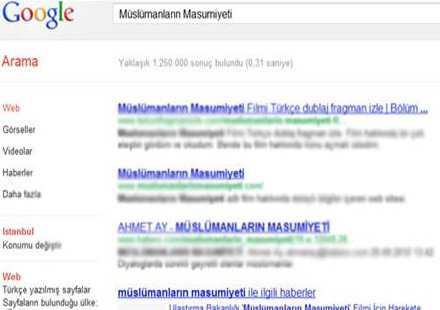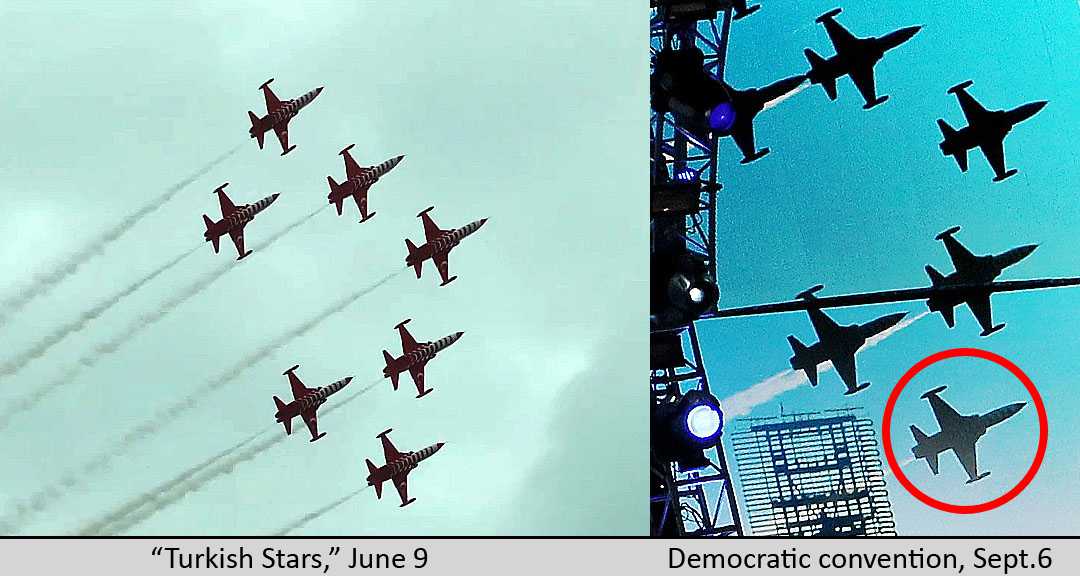Turkish Prime Minister Tayyip Erdogan threatens a ban on YouTube and Facebook to stop political foes posting what he says are ”fabricated” audio recordings, but the President says a closure is out of the question.


Google’s video-sharing site will now use “com.tr” in the European country; this means paying local taxes and abiding by often-strict content regulations.
Dara Kerr
by Dara Kerr
October 2, 2012 6:45 PM PDT
(Credit: Google )
Turkey and YouTube have a checkered past, so today’s news isn’t a big surprise — the video-sharing site will now operate under a local Web domain — “com.tr” — and be subject to the country’s content regulations and taxes.
According to Reuters, Turkey had been working to get YouTube to agree to this set-up for some time.
“This is an important development,” Turkish Transport and Communications Minister Binali Yildirim told Reuters. “For a long time we have made a call to Internet firms in Turkey: ‘You are operating in this country, you must be resident here.’”
Now that YouTube is a resident in Turkey, it will be subject to local taxes and must also abide by the country’s often-strict content regulations. “It will now be in a binding and critical position to implement court decisions and remove any objectionable publications,” Yildirim said.
YouTube announced its deal with European government in a blog post, saying: “Now, if you set Turkey as your location, you’ll get a Turkish-language experience with great, locally relevant content–including recommended channels and videos. We’re looking forward to the ways in which video-loving Turks of all ages will bring their culture to YouTube as they connect with one another, share ideas, and find new audiences.”
Turkey is not the first country to get a local Web domain with YouTube. In fact, 46 other countries around the world have local domains with the video-sharing site, including France, Egypt, Indonesia, Peru, and Yemen.
Relations between the company and Turkey haven’t always been friendly, however. In 2008, Turkey blocked YouTube for more than two years after videos considered insulting to the country’s founder, Mustafa Kemal Ataturk, were posted. The ban was lifted after the offending videos were removed in 2010.
Related stories
YouTube upgrades Content ID, expands appeals process
Twitter launches dedicated presidential debate page
Shining light on new Kindle Paperwhite
Iran unblocks Gmail but still wants to keep out YouTube
YouTube to air presidential debates live on Elections page
Local courts have also recently issued orders to block YouTube access to the anti-Islam film trailer, “Innocence of Muslims,” which has caused sweeping protests across the Middle East. In this movie, the prophet Mohammed is depicted as a buffoonish, skirt-chasing molester. Removal of this video in Turkey will now be much more smooth and speedy now that the site is registered there.
“Now, as soon as the court makes its decision, all the demands will be carried out immediately,” Yildirim told Reuters.
Other countries have been active in battling YouTube over the past month. Iran worked to block Google’s video-sharing site last week, and Brazil recently detained the company’s local chief executive and threatened to block the site if offending videos weren’t removed. Pakistan’s government decided to ban YouTube altogether because of its refusal to block the “Innocence of Muslims” clip.
Updated at 9:00 p.m. PT with quote from YouTube blog post and to add that 46 other countries worldwide have local YouTube Web domains.
via YouTube cedes to Turkey and uses local Web domain | Internet & Media – CNET News.


ANKARA, Turkey — A Turkish court issued an order on Wednesday allowing authorities in the country to block Internet access to the anti-Islam movie that has sparked violent protests across the Muslim world, an official said.
Binali Yildirim, the minister in charge of transportation and communications, told state-run TRT television that the injunction allows government telecommunications and information technology authorities to prevent access from Turkey to URL links to the film.
The move came a day after another government minister said Prime Minister Recep Tayyip Erdogan, who heads an AK Party* party, ordered officials to find ways of preventing access to videos of “Innocence of Muslims” movie.
Dozens of people, including the U.S. ambassador to Libya, have been killed in violence linked to protests over the film.
“Henceforth, it will not be shown in our country,” said Yildirim, calling the film “disgusting.”
“To insult what is sacred, to incite indignation is unacceptable for all religions. It is a hate crime and no crime should go unpunished,” Yildirim said. His office said Tuesday that the ministry has also asked Google Inc. and YouTube to remove the videos.
Erdogan has criticized Western nations for not taking steps to prevent insults to Islamic values but also has criticized violent protests against the film saying they harm Islam.
Yildirim said the court order is limited to links to the film and that access to websites that carry the links would not be blocked. Turkey banned access to the video sharing site YouTube from 2008 and 2010 because of videos deemed insulting to the country’s founder, Mustafa Kemal Ataturk.
Thousands of other websites, most of them pornographic, have also been banned in the country. The government says it is fighting child pornography, illegal gambling and other cybercrimes.
CBS NEWS
Edited*


By Neil Munro
The Democratic Party’s national convention in Charlotte, N.C., may have doubled down on insulting the U.S. military community.
The Democratic National Committee has already apologized for using a photo of four Soviet-era Russian warships in a giant stage backdrop intended to illustrate the party’s support for military personnel and veterans.
That huge image, visible in the Time Warner Cable Arena during speeches by Massachusetts Sen. John Kerry and retired Admiral John B. Nathman, also depicted a synchronized formation of jet aircraft that convention-goers assumed were American fighter planes.
But the F-5 fighter planes in the photo are part of the air force of Turkey, a nation whose government is now jailing journalists and establishing Islam as a state religion.
Brad Woodhouse, a spokesman for the Democratic National Committee, did not respond when the The Daily Caller asked why the convention planners displayed Turkish-flown aircraft alongside Russian warships while seeking support from the American military community.
On Sept. 12, Democrats apologized for using the picture of Soviet-era, Russian-operated ships after the slip up was first reported by the Navy Times. The Navy Times also received a tip that the planes depicted may have been from the Turkish Air Force. (NAVAL EXPERT: Ships shown during Democratic convention tribute to veterans were Russian)
The vessels, with their distinct radars and blue-cross-motif Russian naval flags, occupied the center of the massive backdrop. The aircraft were depicted flying in a seven-plane formation on the upper right.
At least three of the ships in the image were designed and built by the Soviet totalitarian state that killed 20 million of its own citizens. Amid steady pressure from the U.S. military, the Soviet Union collapsed in 1989, marking its defeat in the four-decade Cold War. One of the warships may now be part of the Ukrainian Navy.
The Russian ships and Turkish aircraft were shown during the final night of the Charlotte convention on Sept. 6, shortly before President Barack Obama accepted his party’s nomination to serve a second term.
The image first appeared in the closing minutes of an address by Sen. Kerry.
Obama is “a commander-in-chief who gives our troops the tools and training they need in war,” Kerry said, reinforced by visuals of foreign ships and aircraft operated by foreign-trained military personnel. (SEE ALSO: TheDC’s complete coverage of the 2012 DNC)
Martin Rosenkranz, a military aircraft expert and editor-in-chief of a military aviation journal in Austria, revealed the fighter jets’ origin to The Daily Caller.
“The aircraft in this image displayed are not U.S. [operated] aircraft,” he told TheDC.
“The jets are most likely from the Turkish air force [because] the formation and the type (F-5) flown is very typical of the seven-ship formation flown by the Turkish Air Force Display Team known as the ‘Turkish Stars,’” said Rosenkranz.
“There is no other display team worldwide” that uses a similar seven-aircraft formation.
Rosenkranz’s argument is bolstered by two other factors.
The aircraft shown at the Democrats’ convention are old F-5 aircraft. They were were designed in the United States and sold to many countries, including Turkey — whose display team uses that same model.
Also, the planes depicted in the Democrats’ Sept. 6 photo montage display an unusual red and white striped pattern painted on the underside of their fuselages — most visible on the lowest and best-lit of the F-5s in the image.
During a June 2012 airshow in Norway, seven of the “Turkish Stars” F-5s flew in formation above a cheering crowd. They all featured that same striped paint job, which can be seen 45 seconds into an amateur video available online.
The latest Charlotte faux pas comes as Obama has called for help from Turkey’s prime minister, Recep Erdogan, to stem widespread Islamist riots against U.S. facilities and diplomatic personnel.
Obama and Islamist leaders agree the riots were spurred in part by an anti-Islamic video produced in California, although many regional experts say upsurge was caused by Islamist groups competing for support from anti-American voters.
After blaming the video, the White House asked YouTube on Sept. 14 to consider removing the footage from its Web servers. That same night, just after midnight Pacific time, California police drove the film’s producer to an interview with federal law enforcement authorities to discuss a possible parole violation.
David Martosko contributed reporting.

Daily Caller

Internet Users in Germany, Turkey, Spain and UK Watch Average of At Least 30 Minutes a Day of Online Video
LONDON, UK, 14 June, 2011 – comScore, Inc. (NASDAQ: SCOR), a leader in measuring the digital world, today released April 2011 data from the comScore Video Metrix service, showing that Germany leads in online video viewing across several reporting metrics for the European countries currently reported in comScore Video Metrix (France, Germany, Italy, Russia, Spain, Turkey and UK).
“Online video is beginning to compete with traditional television viewing for people’s attention, and Internet users in several European countries are leading the way,” said Mike Read, comScore SVP of Europe. “Germany is not only the largest European market for online video viewing but also the most engaged at nearly 20 hours per viewer per month, while several other countries are not far behind.”
Germany is one of Largest Online Video Markets in Europe
Of the markets reported by comScore, Germany ranks as the leader in online video viewing, with 45 million unique viewers watching an average of 187 videos for 19.6 hours per viewer in April. Turkey, with 20.7 million viewers overall, ranked second in terms of engagement with 169 videos viewed for an average 18.7 hours per viewer. The UK emerged as the third strongest online video market in engagement with 166 videos watched for 17.0 hours on average per viewer.
| Online Video in Selected European Countries Ranked by Videos per Viewer April 2011 Total Audience; Age 15+ – Home & Work Locations Source: comScore Video Metrix |
|||
| Videos per Viewer | Hours per Viewer | Total Unique Viewers (000) | |
| Germany | 186.9 | 19.6 | 44,928 |
| Turkey | 168.6 | 18.7 | 20,732 |
| United Kingdom | 166.4 | 17.0 | 32,594 |
| Spain | 150.9 | 18.4 | 18,902 |
| France | 131.2 | 12.8 | 38,658 |
| Italy | 114.8 | 12.8 | 18,690 |
| Russia | 86.8 | 9.7 | 39,840 |
*Excludes visitation from public computers such as Internet cafes or access from mobile phones or PDAs
Google Sites Ranks as Top Video Property in All Markets Except Turkey
Google Sites, largely driven by viewing at YouTube, ranked as the leading online video property among all European markets reported in Video Metrix, with the exception of Turkey, where Facebook was the market leader. Facebook is increasing viewership in most countries, and ranked in the top 3 online video destinations in five out of the seven reported European countries. Local online video destinations also ranked among the top 3 in Germany (ProSiebenSat1 Sites), the UK (BBC Sites), France (Dailymotion.com) and Russia (Mail.ru Group). Across markets, Vevo’s videos were largely consumed via their YouTube channel.
| Top Properties | |||
| France | Google Sites | DailyMotion.com | Facebook.com |
| Germany | Google Sites | ProSiebenSat1 Sites | Facebook.com |
| Italy | Google Sites | Facebook.com | Vevo |
| Russia | Google Sites | Mail.ru Group | Gazprom Media |
| Spain | Google Sites | Vevo | Facebook.com |
| Turkey | Facebook.com | Google Sites | DailyMotion.com |
| UK | Google Sites | BBC Sites | Vevo |
About comScore
comScore, Inc. (NASDAQ: SCOR) is a global leader in measuring the digital world and preferred source of digital marketing intelligence. For more information, please visit www.comscore.com/companyinfo.
Berit Block
comScore, Inc.
+ 44 (0) 203-111-1758
[email protected]